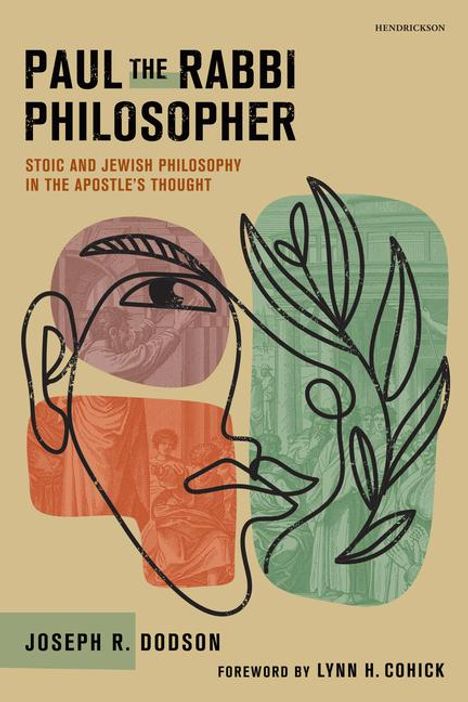Joseph R Dodson: Paul the Rabbi Philosopher: Stoic and Jewish Philosophy in the Apostle's Thought, Kartoniert / Broschiert
Paul the Rabbi Philosopher: Stoic and Jewish Philosophy in the Apostle's Thought
Sie können den Titel schon jetzt bestellen. Versand an Sie erfolgt gleich nach Verfügbarkeit.
- Verlag:
- Hendrickson Publishers, 04/2026
- Einband:
- Kartoniert / Broschiert
- Sprache:
- Englisch
- ISBN-13:
- 9798400500527
- Artikelnummer:
- 12330657
- Umfang:
- 232 Seiten
- Gewicht:
- 318 g
- Maße:
- 465 x 170 mm
- Stärke:
- 150 mm
- Erscheinungstermin:
- 7.4.2026
- Hinweis
-
Achtung: Artikel ist nicht in deutscher Sprache!
Klappentext
If you discovered that pagan scholars influenced Paul's thinking, would this shake your faith? On the contrary! Author Dr. Joseph R. Dodson argues that the more you understand Paul, the more your faith will grow.
Features:
- Side-by-side Hebrew, Greek, and New Testament texts
- Critical notes on every Old Testament quote in the New Testament
- An essential resource for advanced biblical scholarship
Paul the Rabbi Philosopher: Stoic and Jewish Philosophy in the Apostle's Thought is an exegetical and comparative study of Paul's letters in dialogue with first-century Jewish and philosophical texts. This work argues for understanding Paul in his diverse context, where he is both rabbi and philosopher in his presentation of the good news and instruction of obedience to Christ.
In placing Paul amid his rabbinic and philosophical conversation partners, this study provides greater understanding of Paul's gospel and his utilization of first-century language, rhetoric, and tropes to communicate the uniqueness of Jesus Christ as cosmological Victor, the glory of his cross, and our faithful response to the gift of righteousness. Section one places Paul alongside his Jewish contemporaries in their employment of personification and scripture citation to convey the cosmological victory of the Lord. Next, Paul is set in comparison to Stoic philosophers, chiefly Seneca, in their understanding of human depravity, suffering and glory, and apocalyptic eschatology.
Reading Paul with the lenses of his contemporaries is a necessary, invaluable framework for conceptualizing how Paul aligns with, contradicts, and surpasses the first-century presentation of elements such as good news, powers, grace, human depravity, and obedience. As these comparative studies allow readers to understand Paul more clearly, they also allow readers to understand the Jewish and philosophical texts more clearly--evidencing the value of comparative dialogue in Pauline and biblical studies.
Excellent for undergraduate, seminary and graduate students as well as pastors, teachers, and laypersons interested in comparative dialogue of the New Testament letters.


